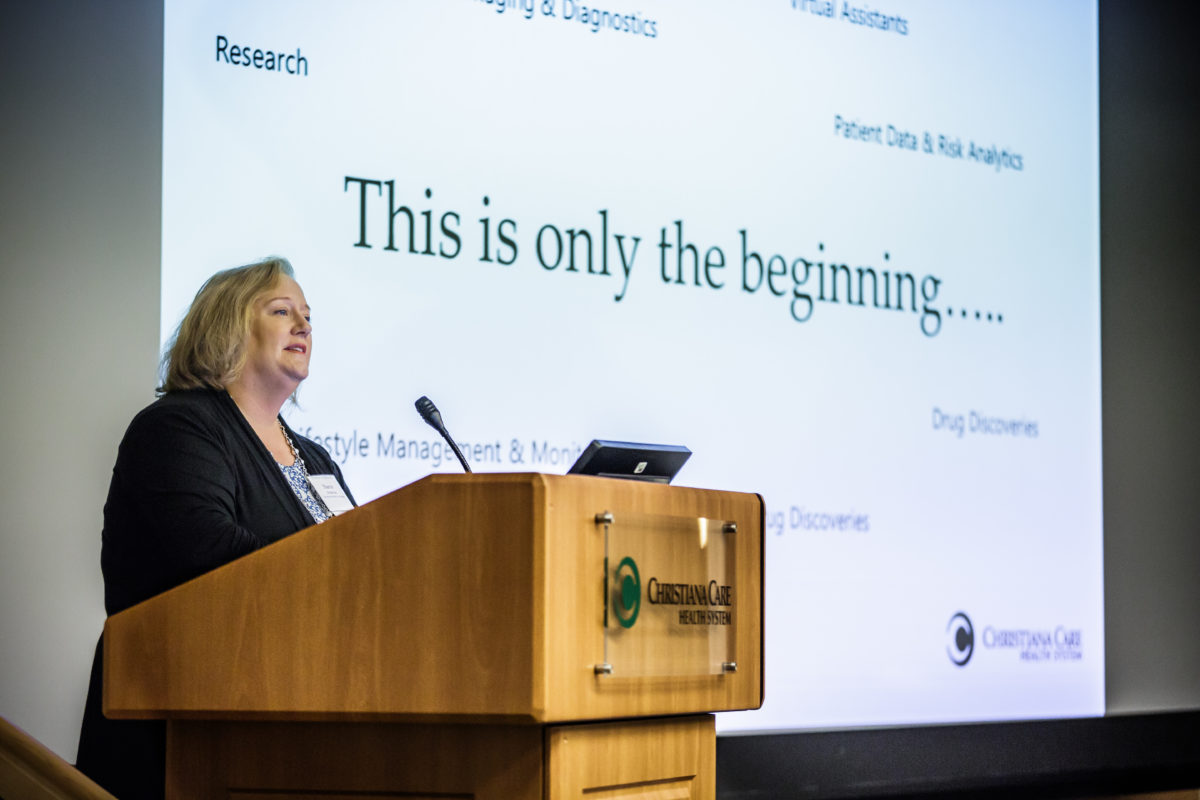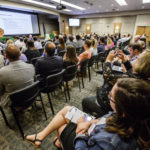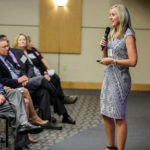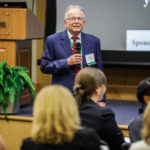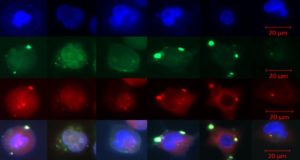Increasingly, Christiana Care clinicians are using predictive analytics to identify the potential for adverse health events before they occur in patients, thereby improving the quality of both outpatient and bedside care and, in many cases, eliminating the need for lengthy hospitalizations.
During the 2017 BioBreakfast, held July 11 at the John H. Ammon Medical Education Center, three Christiana Care leaders explained how state-of-the-art data technology is advancing evidence-based medical interventions.
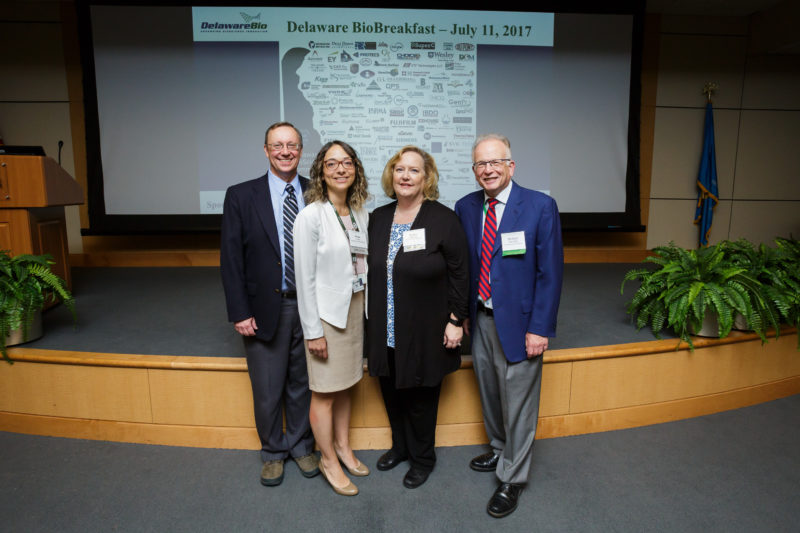
Sharon Anderson, MS, BSN, RN, FACHE, chief population health officer and senior vice president of Quality and Patient Safety, spoke about “Predictive Analytics in Population Health Management.” In 2012 these analytics were a new and vital element in developing what has become Christiana Care’s CareVio, a health platform managing 104,000 patients in Delaware and the surrounding area.
Created with a three-year innovations grant from the U.S. Centers for Medicare and Medicaid Services, CareVio identifies patients at a high risk of an adverse event so a clinical team can consult in real-time and manage issues before they become more serious medical problems. The clinical team includes nurse care coordinators, social workers, pharmacists and support staff, who harness a sophisticated risk algorithm that integrates available sources of a person’s health data, such as emergency department visits, lab results and radiologic reports.
“A big part of our success was the introduction of a risk-prediction engine that not only learns over time, but is able to incorporate health data from patients and calculates a score that is communicated to our nurses so they can act in concert with our medical team to help those who are most at risk for an adverse event,” Anderson said.
As technology-enhanced monitoring expands its capability, such analytics will revolutionize medicine by changing the trajectory of care, she said.
Recently CareVio earned the John M. Eisenberg Patient Safety and Quality Award, the nation’s preeminent honor for quality and safety in health care. The innovative Christiana Care program also earned a 2017 Stand Up for Patient Safety Management Award for impressive results in reducing readmissions. This award is given by the National Patient Safety Foundation in recognition of outstanding improvements in care.
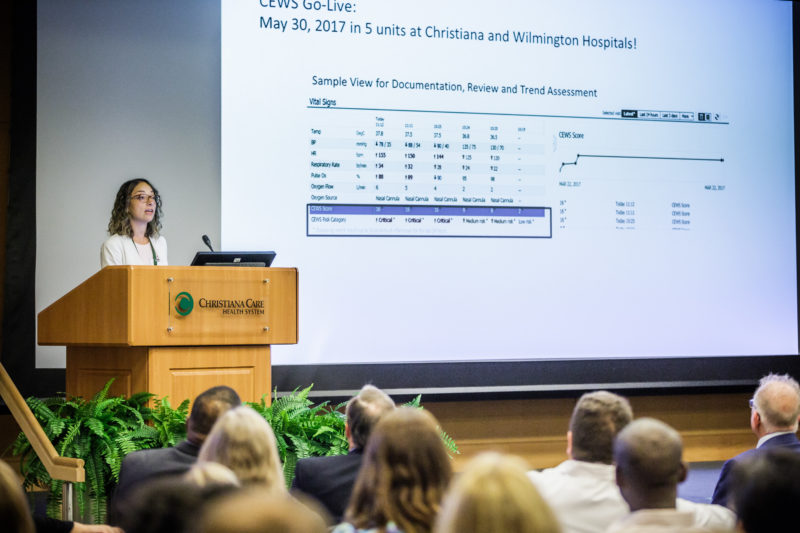
Muge Capan, Ph.D., associate director of Health Systems Optimization at the Value Institute, reported on another advanced analytical tool: the Christiana Care Early Warning System (CEWS), which went live on five patient care units at Christiana Hospital and Wilmington Hospital on May 30. As with CareVio, the Early Warning System is based on the observation that patients typically exhibit physiological deterioration before an adverse health event occurs.
“If we can pick up those early signals it may allow our clinicians to make an early intervention,” said Capan, who added that similar systems are showing success around the country.
The Christiana Care Early Warning System pairs nurse screening assessments taken at the bedside with seven key measures of a patient’s physiological parameters to generate a risk score for a harmful event. The scores are weighted as low, medium, high and critical, with the changes over an eight-hour period informing a clinical team when a patient is stable or improving — or when an intervention is warranted.
She noted that 2.5 million Early Warning System data points were used to launch the system along with 600,000 nursing assessments of 52,000 patients. In the months ahead, Christiana Care hopes to evaluate if patients are indeed healthier and stabilized longer because of the new Early Warning System. In addition, Dr. Capan and colleagues will analyze how the system is learning from new data and how the predictive algorithm might be improved.
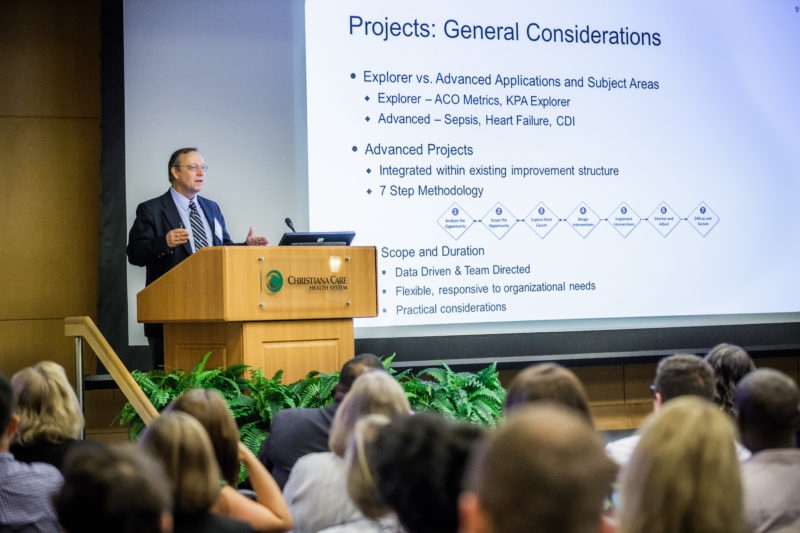
The final talk of the morning was given by Ed Ewen, M.D. FACP, the director of Clinical Data and Analytics in the Center for Strategic Information Management. Dr. Ewen gave an overview of Christiana Care’s “New Strategy for Enterprise Information Management” and its collaboration with a leading-edge data warehousing, analytics and outcomes-improvement partner.
He pointed out that health care is a rapidly changing environment with growing data complexity and increasing regulatory demands. At the same time, Christiana Care remains committed to the triple aim of reducing costs, while improving quality and the patient experience.
Given these challenges, Christiana Care is working to enhance its enterprise information management strategy with the goal of categorizing and freeing data so it can be used by all service lines directly without having to go through a layer of data scientists or IT experts. The focus will shift from gathering and preparing data to learning from it and acting on those lessons to improve the care we deliver.
“To support this aim, we are building a new enterprise data warehouse that offers a readily usable federation of data assets,” Dr. Ewen said. “We have pockets within our system with lots of access to data and pockets with far less access. The goal is to level the playing field and make use of this strategic asset across all our service lines. Over time this can vastly magnify our ability to positively affect the health of our patient population.”
The annual BioBreakfast is sponsored by Christiana Care and the Delaware BioScience Association, a nonprofit formed in 2006 to foster Delaware’s competitiveness in the biosciences and bring together organizations such as hospitals, pharmaceutical firms and research institutions. Close to 150 participants attended the event, which was moderated by Richard Dashefsky, Esq., senior counsel at Christiana Care and a board member of the Delaware BioScience Association.
Others from Christiana Care in attendance included Timothy Gardner, M.D., executive director of the Value Institute and medical director of the Center for Heart & Vascular Health.
“We believe in the mission of strengthening the biosciences in our region as we continue to a build a system of health care that is effective, affordable and valuable to everyone who is touched by it,” Dr. Gardner said.
